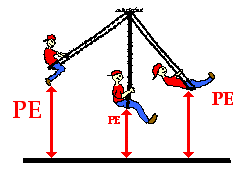Click here to download the PDF 🙂
-
Recent Posts
Recent Comments
Categories
Links
One of my favorite speeches ever, “Why Are You Atheists So Angry?” by Greta Christina. The convention it was at was organized here.
Data on religious statistics and Internet users
Gallup Poll on voter discrimination
Noam Chomsky interview on the Internet
r/atheism, the collaborative Reddit page on atheism
The Secular Web, a treasure trove of information that may steer one away from religion




Before we begin anything: Remember, Remember, The 5th of November!
Pages 1-38
Pages 27-29
“Kandel… found that if you touch a slug’s gill…, the gill will immediately and reflexively recoil. But if you touch the gill repeatedly, without causing any harm to the animal, the recoiling instinct will steadily diminish. … ‘this learned change in behavior was paralleled by a progressive weakening of the synaptic connections’ between the sensory neurons… and the motor neurons… ‘synapses can undergo large and enduring changes in strength after only a relatively small amount of training.’
The plasticity of our synapses brings into harmony two philosophies…: empiricism and rationalism… In the view of empiricists, … we are born with … a blank slate. What we know comes entirely through our experiences, through what we learn as we live… In the view of rationalists, … we are born with built-in mental ‘templates’ that determine how we perceive and make sense of the world.
‘… both views had merit – in fact they complemented each other.’ Our genes ‘specify’ many of ‘the connections among neurons – that is, which neurons form synaptic connections with which other neurons and when.’ Those genetically determined connections form Kant’s innate templates, the basic architecture of the brain. But our experiences regulate the strength, or ‘long-term effectiveness,’ of the connections, as Locke had argued, the ongoing reshaping of the mind and ‘the expression of new patterns of behavior.’ The opposing philosophies of the empiricist and the rationalist find their common ground in the synapse… nature and nurture ‘actually speak the same language. They both ultimately achieve their mental and behavioral effects by shaping the synaptic organization of the brain.’”
There are two aspects of this excerpt that jump out at me. The first is the ease with which creatures may be conditioned. I can’t help but wonder whether humans may be conditioned so easily. Based on my experience with people, I’d say probably yes. The second thing that pops out at me is the relationship between nature and nurture in developing who we are. It raises questions about what potential really is: a limiter that we have created, or an actual aspect of our ability. It makes me think of the famous Aristotle quote, “We are what we repeatedly do. Excellence, then, is not an act, but a habit.” Perhaps I will explore potential for my final project.
Pages 39-80
Pages 45-46
“Our ancestors didn’t develop or use maps… Ultimately, it’s an invention’s intellectual ethic that has the most profound effect on us. The intellectual ethic is the message that a medium or other tool transmits into the minds and culture of its users.”
I’ve always found mode of expression to be particularly important in personal connections- anyone can tell you that being broken up with via text message is particularly off-putting. However, it never really occurred to me how much disjointed communication (i.e. mass media) and personal communication have in common as far as how the medium conveys a message completely separate from the content. This section made me think of why many people fail at weight loss programs: weight loss books are not dynamic and don’t answer questions, and groups like Weight Watchers rely on tendencies, rather than personalized histories, to make their claims; as a result, many feel disenfranchised from their goals and unmotivated. Perhaps this too can be used towards a study of potential and how to increase potential success.
J. K. Rowling isn’t Shakespeare, but she also loves her potion makers! This little doozie of a quote from Professor Snape at Harry Potter’s first Potions lesson is an evocative one. Whether it makes you think of illusion, hypnosis, psychology, technology, or just a really trippy song, it stimulates much more than just throwing some ingredients into an enormous pot.
I chose “ensnare the senses” for my blog URL (and tentatively for the blog title) because this is the topic I’d like to explore here. I want to discuss how immersed we become in digital experiences and the alternate realities we create because of them.